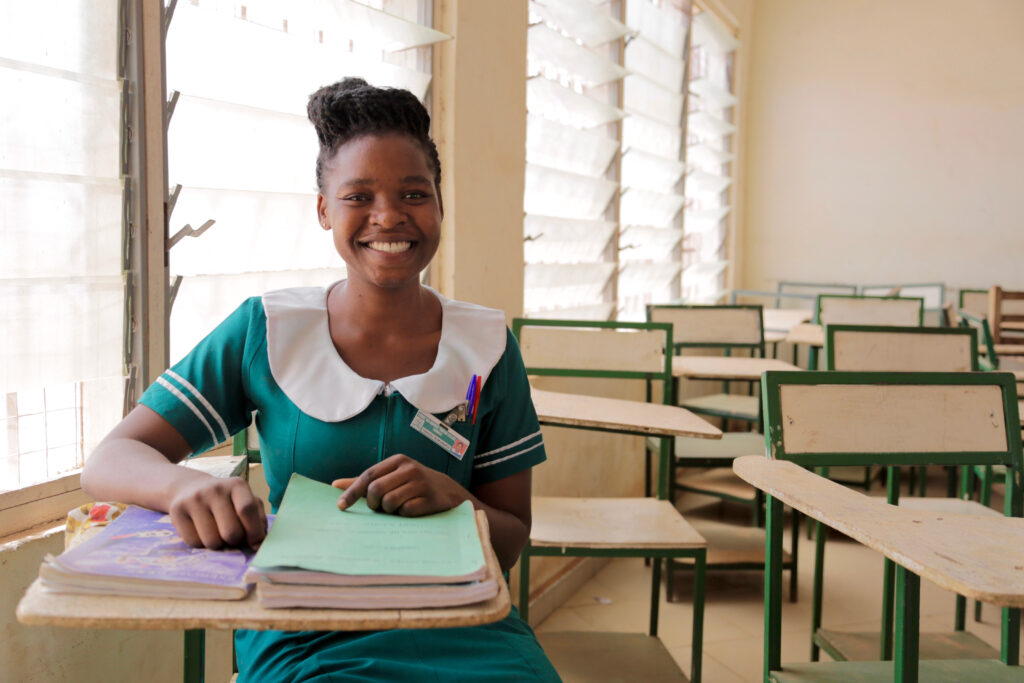The Mastercard Foundation has announced a major expansion of its partnerships with the Campaign for Female Education (CAMFED) and the Forum for African Women Educationalists (FAWE). This collaboration aims to dismantle financial and social barriers to education, directly impacting over 70,400 young women and girls, while benefiting 3.3 million young people across the continent.
A $360 Million Investment for Education and Employment
Over the next seven years, the Mastercard Foundation will invest an additional $360 million to support young women’s transitions through education, entrepreneurship, and employment. This investment is part of the Foundation’s broader commitment to building inclusive education systems and enabling Africa’s youth, particularly girls, to succeed and thrive.
CAMFED Partnership: Empowering Girls in Five African Countries
A significant portion of the investment will be allocated to CAMFED, with a focus on transforming educational and economic opportunities for girls in Tanzania, Zambia, Zimbabwe, Ghana, and Malawi. Over the next six years, the partnership will support 62,000 girls through secondary and tertiary education and into employment or entrepreneurship.
In addition to this direct support, CAMFED will collaborate with local communities and governments to strengthen education systems that benefit millions of students across these countries. The long-standing partnership between the Mastercard Foundation and CAMFED has already enabled over 35,000 young women to access secondary and higher education. This latest investment will build on that success and accelerate progress toward achieving the Sustainable Development Goals (SDGs) in Africa.
Angeline Murimirwa, CEO of CAMFED, expressed her enthusiasm for the partnership:
“This investment supercharges our ambitious vision for 2030 as we support millions more girls in rural Africa to thrive in secondary school, graduate into secure livelihoods and leadership, and in turn, mentor and support the next generation.”
FAWE Partnership Expansion: Broadening Access to Tertiary Education
In addition to its collaboration with CAMFED, the Mastercard Foundation is expanding its seven-year partnership with FAWE. This initiative will focus on increasing access to tertiary education, technical vocational and educational training (TVET), and job opportunities for over 10,500 young people across Uganda, Rwanda, Zambia, Ethiopia, Malawi, Ghana, Liberia, Tanzania, Zimbabwe, and Senegal.
FAWE’s expansion will also extend its support to over 500 accredited tertiary institutions in Africa, benefiting an estimated 1.2 million young women. These programs will equip participants with the skills and opportunities needed to contribute to their communities and drive economic growth.
Martha Muhwezi, Executive Director of FAWE Africa, emphasized the program’s impact:
“We are particularly thrilled to see this program expand from three countries to 10, a clear testament to its impact and potential. Education, skills development, and leadership will remain our priority to prepare the current generation to lead, innovate, and drive positive change across the continent.”
Advancing the Young Africa Works Strategy
These partnerships with CAMFED and FAWE are integral to the Mastercard Foundation’s Young Africa Works strategy, which aims to enable 30 million young Africans—especially girls—to access dignified and fulfilling work by 2030.
Tina Muparadzi, Executive Director of Education & Transitions at the Mastercard Foundation, underscored the significance of these partnerships:
“We’re incredibly proud to deepen our collaboration with CAMFED and FAWE. This partnership will be pivotal in establishing an inclusive and equitable environment required to fully unlock this opportunity, enabling the most vulnerable and underserved girls in society to thrive.”
Transforming Lives and Building a Brighter Future
By investing in education, entrepreneurship, and employment pathways for young women, the Mastercard Foundation is not only transforming individual lives but also contributing to a more inclusive and prosperous future for Africa. These partnerships represent a significant step toward achieving educational equity and unlocking the potential of Africa’s next generation of leaders.
Source: Mastercard


















